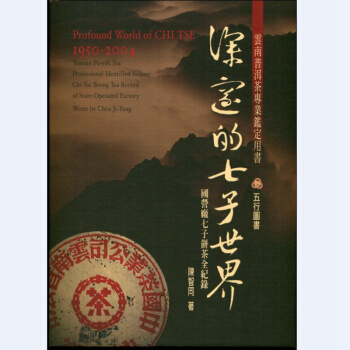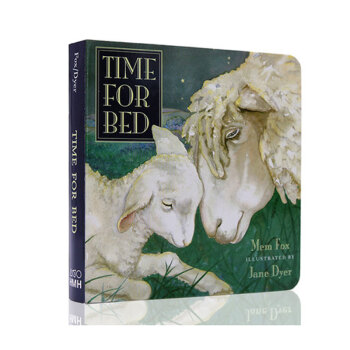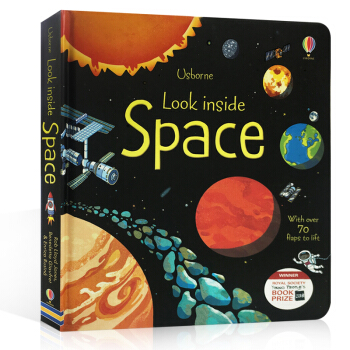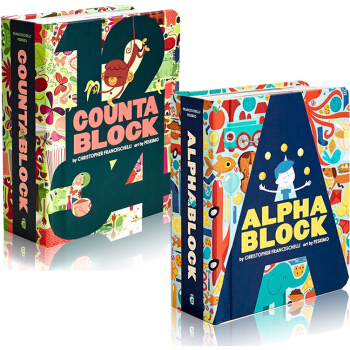![No Country for Old Men (Vintage International)[老无所依(电影版)] [平装]](https://pic.windowsfront.com/19045229/rBEhWFKKyrYIAAAAAAq20m_qnMUAAFp3gFAirkACrbq533.jpg)

具体描述
内容简介
In No Country for Old Men, Cormac McCarthy simultaneously strips down the American crime novel and broadens its concerns to encompass themes as ancient as the Bible and as bloodily contemporary as this morning’s headlines.作者简介
Cormac McCarthy was born in Rhode Island. He later went to Chicago, where he worked as an auto mechanic while writing his first novel, The Orchard Keeper. The Orchard Keeper was published by Random House in 1965; McCarthy's editor there was Albert Erskine, William Faulkner's long-time editor. Before publication, McCarthy received a traveling fellowship from the American Academy of Arts and Letters, which he used to travel to Ireland. In 1966 he also received the Rockefeller Foundation Grant, with which he continued to tour Europe, settling on the island of Ibiza. Here, McCarthy completed revisions of his next novel, Outer Dark. In 1967, McCarthy returned to the United States, moving to Tennessee. Outer Dark was published by Random House in 1968, and McCarthy received the Guggenheim Fellowship for Creative Writing in 1969. His next novel, Child of God, was published in 1973. From 1974 to 1975, McCarthy worked on the screenplay for a PBS film called The Gardener's Son, which premiered in 1977. A revised version of the screenplay was later published by Ecco Press. In the late 1970s, McCarthy moved to Texas, and in 1979 published his fourth novel, Suttree, a book that had occupied his writing life on and off for twenty years. He received a MacArthur Fellowship in 1981, and published his fifth novel, Blood Meridian, in 1985. All the Pretty Horses, the first volume of The Border Trilogy, was published by Knopf in 1992. It won both the National Book Award and the National Book Critics Circle Award and was later turned into a feature film. The Stonemason, a play that McCarthy had written in the mid-1970s and subsequently revised, was published by Ecco Press in 1994. Soon thereafter, Knopf released the second volume of The Border Trilogy, The Crossing; the third volume, Cities of the Plain, was published in 1998.McCarthy's next novel, No Country for Old Men was published in 2005. This was followed in 2006 by a novel in dramatic form, The Sunset Limited, originally performed by Steppenwolf Theatre Company of Chicago and published in paperback by Vintage Books. McCarthy's most recent novel, The Road, was published in 2006 and won the Pulitzer Prize.精彩书评
Seven years after Cities of the Plain brought his acclaimed Border Trilogy to a close, McCarthy returns with a mesmerizing modern-day western. In 1980 southwest Texas, Llewelyn Moss, hunting antelope near the Rio Grande, stumbles across several dead men, a bunch of heroin and $2.4 million in cash. The bulk of the novel is a gripping man-on-the-run sequence relayed in terse, masterful prose as Moss, who's taken the money, tries to evade Wells, an ex–Special Forces agent employed by a powerful cartel, and Chigurh, an icy psychopathic murderer armed with a cattle gun and a dangerous philosophy of justice. Also concerned about Moss's whereabouts is Sheriff Bell, an aging lawman struggling with his sense that there's a new breed of man (embodied in Chigurh) whose destructive power he simply cannot match. In a series of thoughtful first-person passages interspersed throughout, Sheriff Bell laments the changing world, wrestles with an uncomfortable memory from his service in WWII and—a soft ray of light in a book so steeped in bloodshed—rejoices in the great good fortune of his marriage. While the action of the novel thrills, it's the sensitivity and wisdom of Sheriff Bell that makes the book a profound meditation on the battle between good and evil and the roles choice and chance play in the shaping of a life.
--Starred Review
McCarthy’s Border Trilogy, distinguished by the award-winning All the Pretty Horses (1992), contains dark Westerns set against beautiful, bleak landscapes. His newest novel updates his character-driven plots and themes of violence and moral ambiguity. Perhaps the true sign of a master is one whose work raises debate—and this is what No Country has done. Most critics praised McCarthy’s clean, simple prose, though a few thought it too spare for such a graceful stylist. ("The man looked at Chigurh’s eyes for the first time. Blue as lapis. At once glistening and opaque. Like wet stones.") Compelling characters (even women) abound, but Sheriff Bell came off as either smart or too long winded. Finally, the violence seemed gratuitous to some. Even if No Country may be a more minor McCarthy novel, it’s still a terrifying page-turner in the vein of the Trilogy.
--Bookmarks Magazine
精彩书摘
II sent one boy to the gaschamber at Huntsville. One and only one. My arrest and my testimony. I went up there and visited with him two or three times. Three times. The last time was the day of his execution. I didnt have to go but I did. I sure didnt want to. He’d killed a fourteen year old girl and I can tell you right now I never did have no great desire to visit with him let alone go to his execution but I done it. The papers said it was a crime of passion and he told me there wasnt no passion to it. He’d been datin this girl, young as she was. He was nineteen. And he told me that he had been plannin to kill somebody for about as long as he could remember. Said that if they turned him out he’d do it again. Said he knew he was goin to hell. Told it to me out of his own mouth. I dont know what to make of that. I surely dont. I thought I’d never seen a person like that and it got me to wonderin if maybe he was some new kind. I watched them strap him into the seat and shut the door. He might of looked a bit nervous about it but that was about all. I really believe that he knew he was goin to be in hell in fifteen minutes. I believe that. And I’ve thought about that a lot. He was not hard to talk to. Called me Sheriff. But I didnt know what to say to him. What do you say to a man that by his own admission has no soul? Why would you say anything? I’ve thought about it a good deal. But he wasnt nothin compared to what was comin down the pike.
They say the eyes are the windows to the soul. I dont know what them eyes was the windows to and I guess I’d as soon not know. But there is another view of the world out there and other eyes to see it and that’s where this is goin. It has done brought me to a place in my life I would not of thought I’d of come to. Somewhere out there is a true and living prophet of destruction and I dont want to confront him. I know he’s real. I have seen his work. I walked in front of those eyes once. I wont do it again. I wont push my chips forward and stand up and go out to meet him. It aint just bein older. I wish that it was. I cant say that it’s even what you are willin to do. Because I always knew that you had to be willin to die to even do this job. That was always true. Not to sound glorious about it or nothin but you do. If you aint they’ll know it. They’ll see it in a heartbeat. I think it is more like what you are willin to become. And I think a man would have to put his soul at hazard. And I wont do that. I think now that maybe I never would.
The deputy left Chigurh standing in the corner of the office with his hands cuffed behind him while he sat in the swivelchair and took off his hat and put his feet up and called Lamar on the mobile.
Just walked in the door. Sheriff he had some sort of thing on him like one of them oxygen tanks for emphysema or whatever. Then he had a hose that run down the inside of his sleeve and went to one of them stunguns like they use at the slaughterhouse. Yessir. Well that’s what it looks like. You can see it when you get in. Yessir. I got it covered. Yessir.
When he stood up out of the chair he swung the keys off his belt and opened the locked desk drawer to get the keys to the jail. He was slightly bent over when Chigurh squatted and scooted his manacled hands beneath him to the back of his knees. In the same motion he sat and rocked backward and passed the chain under his feet and then stood instantly and effortlessly. If it looked like a thing he’d practiced many times it was. He dropped his cuffed hands over the deputy’s head and leaped into the air and slammed both knees against the back of the deputy’s neck and hauled back on the chain.
They went to the floor. The deputy was trying to get his hands inside the chain but he could not. Chigurh lay there pulling back on the bracelets with his knees between his arms and his face averted. The deputy was flailing wildly and he’d begun to walk sideways over the floor in a circle, kicking over the wastebasket, kicking the chair across the room. He kicked shut the door and he wrapped the throwrug in a wad about them. He was gurgling and bleeding from the mouth. He was strangling on his own blood. Chigurh only hauled the harder. The nickelplated cuffs bit to the bone. The deputy’s right carotid artery burst and a jet of blood shot across the room and hit the wall and ran down it. The deputy’s legs slowed and then stopped. He lay jerking. Then he stopped moving altogether. Chigurh lay breathing quietly, holding him. When he got up he took the keys from the deputy’s belt and released himself and put the deputy’s revolver in the waistband of his trousers and went into the bathroom.
He ran cold water over his wrists until they stopped bleeding and he tore strips from a handtowel with his teeth and wrapped his wrists and went back into the office. He sat on the desk and fastened the toweling with tape from a dispenser, studying the dead man gaping up from the floor. When he was done he got the deputy’s wallet out of his pocket and took the money and put it in the pocket of his shirt and dropped the wallet to the floor. Then he picked up his airtank and the stungun and walked out the door and got into the deputy’s car and started the engine and backed around and pulled out and headed up the road.
On the interstate he picked out a late model Ford sedan with a single driver and turned on the lights and hit the siren briefly. The car pulled onto the shoulder. Chigurh pulled in behind him and shut off the engine and slung the tank across his shoulder and stepped out. The man was watching him in the rearview mirror as he walked up.
What’s the problem, officer? he said.
Sir would you mind stepping out of the vehicle?
The man opened the door and stepped out. What’s this about? he said.
Would you step away from the vehicle please.
The man stepped away from the vehicle. Chigurh could see the doubt come into his eyes at this bloodstained figure before him but it came too late. He placed his hand on the man’s head like a faith healer. The pneumatic hiss and click of the plunger sounded like a door closing. The man slid soundlessly to the ground, a round hole in his forehead from which the blood bubbled and ran down into his eyes carrying with it his slowly uncoupling world visible to see. Chigurh wiped his hand with his handkerchief. I just didnt want you to get blood on the car, he said.
Moss sat with the heels of his boots dug into the volcanic gravel of the ridge and glassed the desert below him with a pair of twelve power german binoculars. His hat pushed back on his head. Elbows propped on his knees. The rifle strapped over his shoulder with a harnessleather sling was a heavybarreled .270 on a ’98 Mauser action with a laminated stock of maple and walnut. It carried a Unertl telescopic sight of the same power as the binoculars. The antelope were a little under a mile away. The sun was up less than an hour and the shadow of the ridge and the datilla and the rocks fell far out across the floodplain below him. Somewhere out there was the shadow of Moss himself. He lowered the binoculars and sat studying the land. Far to the south the raw mountains of Mexico. The breaks of the river. To the west the baked terracotta terrain of the run- ning borderlands. He spat dryly and wiped his mouth on the shoulder of his cotton workshirt.
The rifle would shoot half minute of angle groups. Five inch groups at one thousand yards. The spot he’d picked to shoot from lay just below a long talus of lava scree and it would put him well within that distance. Except that it would take the better part of an hour to get there and the antelope were grazing away from him. The best he could say about any of it was that there was no wind.
When he got to the foot of the talus he raised himself slowly and looked for the antelope. They’d not moved far from where he last saw them but the shot was still a good seven hundred yards. He studied the animals through the binoculars. In the compressed air motes and heat distortion. A low haze of shimmering dust and pollen. There was no other cover and there wasnt going to be any other shot.
He wallowed down in the scree and pulled off one boot and laid it over the rocks and lowered the forearm of the rifle down into the leather and pushed off the safety with his thumb and sighted through the scope.
They stood with their heads up, all of them, looking at him.
Damn, he whispered. The sun was behind him so they couldnt very well have seen light reflect off the glass of the scope. They had just flat seen him.
The rifle had a Canjar trigger set to nine ounces and he pulled the rifle and the boot toward him with great care and sighted again and jacked the crosshairs slightly up the back of the animal standing most broadly to him. He knew the exact drop of the bullet in hundred yard increments. It was the distance that was uncertain. He laid his finger in the curve of the trigger. The boar’s tooth he wore on a gold chain spooled onto the rocks inside his elbow.
用户评价
这本书的对话是绝妙的。它们极其口语化,充满了地方色彩,却又蕴含着深刻的哲学思辨。角色之间很少进行无谓的寒暄,每一句话都像是经过千锤百炼的,直击要害。尤其是一些关于命运、关于选择的对白,简洁到让人忍不住停下来,反复咀嚼其中的深意。这种文学处理方式,让读者在阅读时不得不积极参与到文本的意义构建中去。它不像有些小说把所有东西都喂到你嘴边,而是要求你弯下腰,在沙砾中去寻找那些闪光的真理碎片。我常常在想,如果把这些对话抽离出来,它们本身就是一组组极具力量的短篇故事。这种对白艺术,与小说整体那种荒凉、不加修饰的美学风格完美地融合在一起,形成了一种独一无二的阅读体验,令人过目难忘。
评分说实话,初读这本书时,我感到一种强烈的疏离感,那种简洁到近乎残忍的句式结构,一开始确实让人有些不适应。麦卡锡似乎完全摒弃了传统小说中那些繁复的内心独白和情绪铺垫,他只是冷漠地记录着事件的发生。然而,正是这种克制,反而带来了更强大的情感冲击力。当你习惯了他的节奏后,你会发现每一个被省略的逗号和省略的引导词,都像是在推动故事以一种不可逆转的、机械般的步伐向前。书中对暴力场面的描绘,没有丝毫的煽情或美化,它就是在那里,冷酷、直接、后果严重。这迫使我必须自己去构建和感受那种恐惧和绝望。这本书的厉害之处在于,它探讨的不是“好人”与“坏人”的对决,而是当“绝对的混乱”降临时,个体如何挣扎求存。它让我开始思考,我们赖以生存的社会规则,在真正的原始力量面前,究竟有多么脆弱不堪。
评分这本小说给我带来的震撼,简直是文字力量的极致展现。科马克·麦卡锡的笔触冷峻而精准,像一把锋利的手术刀,毫不留情地剖开了人性的幽暗角落。故事的推进充满了宿命般的压迫感,你仿佛能闻到德州旷野上那股干燥、令人窒息的尘土味。人物塑造极其成功,特别是那个几乎是纯粹邪恶化身的杀手,他的存在本身就是对秩序和道德的彻底颠覆。读这本书的过程更像是一种体验,一种直面混乱和暴力的过程,而不是简单的消遣。每一次翻页都伴随着心跳的加速,因为你知道,作者不会给你任何安慰,他只会把真相赤裸裸地摆在你面前,让你自己去消化那种无处不在的、随机的、毫无理由的残酷。那种感觉就像置身于一场永无止境的、没有明确目标的追逐中,你知道自己跑不掉,但又必须不停地跑下去。结局的处理更是高明,它没有提供任何廉价的答案或正义的宣泄,留给读者的只有无尽的回味和对生命本质的深刻反思。
评分看完这本书后,我花了好几天时间才真正“走出来”。它带来的后劲太大了,以至于我看向周围的世界时,总会不自觉地用书中那种冷峻的滤镜去审视一切。这本书的结构非常巧妙,看似是几条平行的线索,最终却以一种近乎宿命论的方式交汇在一起,揭示了某种宏大的、超越个人意志的运作法则。它探讨的“恶”不是那种可以被法律制裁的恶,而是一种宇宙性的、难以名状的熵增力量。我特别欣赏作者在描绘环境时的笔法,那些干旱的平原、无垠的夜空,不仅仅是故事发生的背景,它们本身就是角色,是压迫主角的沉默力量。阅读这本书,就像是参与了一场漫长而痛苦的仪式,它剥去了你对世界的许多不切实际的幻想,但同时也赋予了你一种更清醒、更坚韧的生存视角。
评分我得承认,这本书并不适合所有人。它非常“硬核”,需要读者投入极大的专注力去跟随那些看似散漫却又紧密相连的叙事线索。对我个人而言,这本书更像是一部现代西部悲剧的史诗,只不过这里的英雄不再是骑着白马拯救人民的警长,而是一个被卷入漩涡、努力想保有自己那点可怜尊严的普通人。书中弥漫着一种强烈的“失落感”,不是怀旧式的怀旧,而是一种关于道德高地和人性光辉正在迅速崩塌的失落。那种仿佛整个世界都在向后退化的绝望感,通过主角最后的困境被放大到了极致。我喜欢那种氛围的营造,那种仿佛时间静止在某个荒凉的交叉路口,所有选择都导向同一片虚无的感受。它不像很多惊悚小说那样追求高潮迭起,它的张力是持续性的、渗透性的,像一滴水慢慢滴穿石头。
评分这本书,写的很细腻。。。。。
评分文字比电影有更大的想象空间
评分看介绍很吸引人,屯着慢慢看
评分质量很好!
评分经典的一本书,很好哦
评分不知道是不是正品,这么贵
评分经典的一本书,很好哦
评分不知道是不是正品,这么贵
评分非常好啊 积累知识,胜过积蓄金银。(欧洲谚语) 谦虚是学习的朋友 泰山不是垒的,学问不是吹的。天不言自高,地不语自厚。 水满则溢,月满则亏;自满则败,自矜则愚。 包子有肉,不在皮上;人有学问,不挂嘴上。 不实心不成事,不虚心不知事。不自是者博闻,不自满者受益。 虚心的人,常想己之短;骄傲的人,常夸己之长。 自赞就是自轻。自满是智慧的尽头。 如果有了胡子就算学识渊博,那么,山羊也可以讲课了。 成就是谦虚者前进的阶梯,也是骄傲者后退的滑梯。 吹嘘自己有知识的人,等于在宣扬自己的无知。 言过其实,终无大用。知识愈浅,自信愈深。 讷讷寡言者未必愚,喋喋利口者未必智。 宽阔的河平静,博学的人谦虚。秀才不怕衣衫破,就怕肚子没有货。 山不厌高,水不厌深。骄傲是跌跤的前奏。 读万卷书行万里路,怀报国志作孺子牛。 骄傲来自浅薄,狂妄出于无知。骄傲是失败的开头,自满是智慧的尽头。 说大话的人像爆竹,响一声就完了。鉴唯明,始能照物;衡唯平,始能权物。 谦虚是学习的朋友,自满是学习的敌人。 赶脚的对头是脚懒,学习的对头是自满。 虚心使人进步,骄傲使人落后。虚心的人学十算一,骄傲的人学一当十。 强中更有强中手,莫向人前自夸口。 喜欢吹嘘的人犹如一面大鼓,响声大腹中空。 人唯虚,始能知人。满招损,谦受益。满必溢,骄必败。 知识贮藏在谦虚的大海中。(朝鲜谚语) 学问多深也别满足,过失多小也别忽略。(蒙古谚语) 懂得自己无知,说明已有收获。(拉丁美洲谚语) 学问学问,不懂就问 刀钝石上磨,人笨人前学。以人为师能进步。 试试并非受罪,问问并不吃亏。善于发问的人,知识丰富。 不听指点,多绕弯弯。不懂装懂,永世饭桶。 智者千虑,必有一失;愚者千虑,必有一得。 不能则学,不知则问,耻于问人,决无长进。 学问渊博的人,懂了还要问;学问浅薄的人,不懂也不问。 井淘三遍吃好水,人从三师武艺高。 手指有长有短,知识有高有低。学无前后,达者为师。 边学边问,才有学问。若要精,人前听。 只要是有益的话,小孩的话也要听。 要学蜜蜂采百花,问遍百家成行家。 老姜辣味大,老人经验多。请教别人不折本,舌头打个滚。 怕问路,要迷路。嘴勤不走冤枉路。 不问的人永远和愚昧在一起。(东非谚语) 耳朵没有底,可以从早听到晚。(非洲谚语) 世上无难事,只要肯登攀。——毛泽东 一分耕耘,一分收获。一艺之成,当尽毕生之力。 一个不想蹚过小河的人,自然不想远涉重洋。针越用越明,脑越用越灵。 学在苦中求,艺在勤中练。不怕学问浅,就怕志气短。 才华是血汗的结晶。才华是刀刃,辛苦是磨刀石。 上如阶尽管费力,却一步比一步高。不经过琢磨,宝石也不会发光。 心专才能绣得花,心静才能织得麻。书山有路勤为径,学海无涯苦作舟。 日日行,不怕千万里;时时学,不怕千万卷。多练多乖,不练就呆。 只有努力攀登顶峰的人,才能把顶峰踩在脚下。困难是人的教科书。 汗水和丰收是忠实的伙伴,勤学和知识是一对最美丽的情侣。 学习如钻探石油,钻得愈深,愈能找到知识的精髓。先学爬,然后学走。 心坚石也穿。好记性不如烂笔头。勤勉是成功之母。 好高骛远的一无所得,埋头苦干的获得知识。百艺通,不如一艺精。 同时赶两只兔,一只也捉不到。一回生,二回熟,三回过来当师傅。 学如逆水行舟,不进则退。学习如赶路,不能慢一步。 学问之根苦,学问之果甜。学问勤中得,富裕俭中来。 注意力是智慧的门户。要得惊人艺,须下苦功夫。 只要功夫深,铁杵磨成绣花针。拳不离手,曲不离口。 常说口里顺,常做手不笨。最淡的墨水,也胜过最强的记性。 搓绳不能松劲,前进不能停顿。瞄准还不是射中,起跑还不算到达。 没有艰苦的学习,就没有最简单的发明。(南斯拉夫谚语) 谁游乐无度,谁没空学习。(法国谚语) 谁要懂得多,就要睡得少。(亚美尼亚谚语) 知识好像砂石下面的泉水,越掘得深泉水越清。(丹麦谚语) 知识需要反复探索,土地需要辛勤耕耘。(尼泊尔谚语) 学如驾车登山,不进就退。(日本谚语) 读了懂不了,用处也不大
相关图书
本站所有内容均为互联网搜索引擎提供的公开搜索信息,本站不存储任何数据与内容,任何内容与数据均与本站无关,如有需要请联系相关搜索引擎包括但不限于百度,google,bing,sogou 等
© 2026 book.coffeedeals.club All Rights Reserved. 静流书站 版权所有

![As I Lay Dying 英文原版 [平装] pdf epub mobi 电子书 下载](https://pic.windowsfront.com/19045901/cd919abf-160f-4362-adf9-3aa681254bd2.jpg)
![What Happened on Fox Street [平装] [8岁及以上] pdf epub mobi 电子书 下载](https://pic.windowsfront.com/19094319/550bf539N646bc86c.jpg)
![Millions of Cats 英文原版 [平装] [3岁及以上] pdf epub mobi 电子书 下载](https://pic.windowsfront.com/19140294/cb897713-f6fa-4714-8845-efe3ddb7c979.jpg)
![Spot's First Walk [Board Book] [1岁及以上] pdf epub mobi 电子书 下载](https://pic.windowsfront.com/19142254/4410979d-babf-45b5-b503-0453fe4d185f.jpg)



![My Brilliant Friend 英文原版 [平装] pdf epub mobi 电子书 下载](https://pic.windowsfront.com/19364082/rBEhWFJbZJ0IAAAAAABVXL4B2QAAAEGzwClRBkAAFV0812.jpg)


![[预售]奇迹男孩 英文原版 Wonder Movie Tie-In Edition 青春励志小说 pdf epub mobi 电子书 下载](https://pic.windowsfront.com/23861149879/5a67ecbeN4a09697e.jpg)


![Goosebumps HorrorLand #09: Welcome to Camp Slither 鸡皮疙瘩惊恐乐园系列#09:惊悚露营 [平装] [9岁及以上] pdf epub mobi 电子书 下载](https://pic.windowsfront.com/19012701/cc91f9ff-e902-4a0f-9e67-999ada2d241f.jpg)
![The Ballot Box Battle [平装] [3岁及以上] pdf epub mobi 电子书 下载](https://pic.windowsfront.com/19036622/574091aa-357d-43f8-a5a2-473e674d2a3f.jpg)
![The Order of Things 事物的次序 [平装] pdf epub mobi 电子书 下载](https://pic.windowsfront.com/19245211/rBEGEk-o7DgIAAAAAAAdk7JnhGQAAA5RQFrtusAAB2r235.jpg)
![Bryson's Dictionary of Troublesome Words: A Writer's Guide to Getting It Right [平装] pdf epub mobi 电子书 下载](https://pic.windowsfront.com/19300468/rBEhWlJbXuUIAAAAAAA6qX8UU0IAAEGtQMBL8UAADrB141.jpg)
![Journey 旅行 英文原版 [精装] [4-8岁] pdf epub mobi 电子书 下载](https://pic.windowsfront.com/19502107/53e85426N953bec57.jpg)
![Identity Crisis 10th Anniversary 英文原版 [精装] pdf epub mobi 电子书 下载](https://pic.windowsfront.com/19527770/57b55dabNf6801524.jpg)
![Friends For Keeps:Yummy Icecream [平装] [2岁以上] [友谊故事系列之好好吃的冰淇淋] pdf epub mobi 电子书 下载](https://pic.windowsfront.com/19545714/5641876bN80c5d7be.jpg)